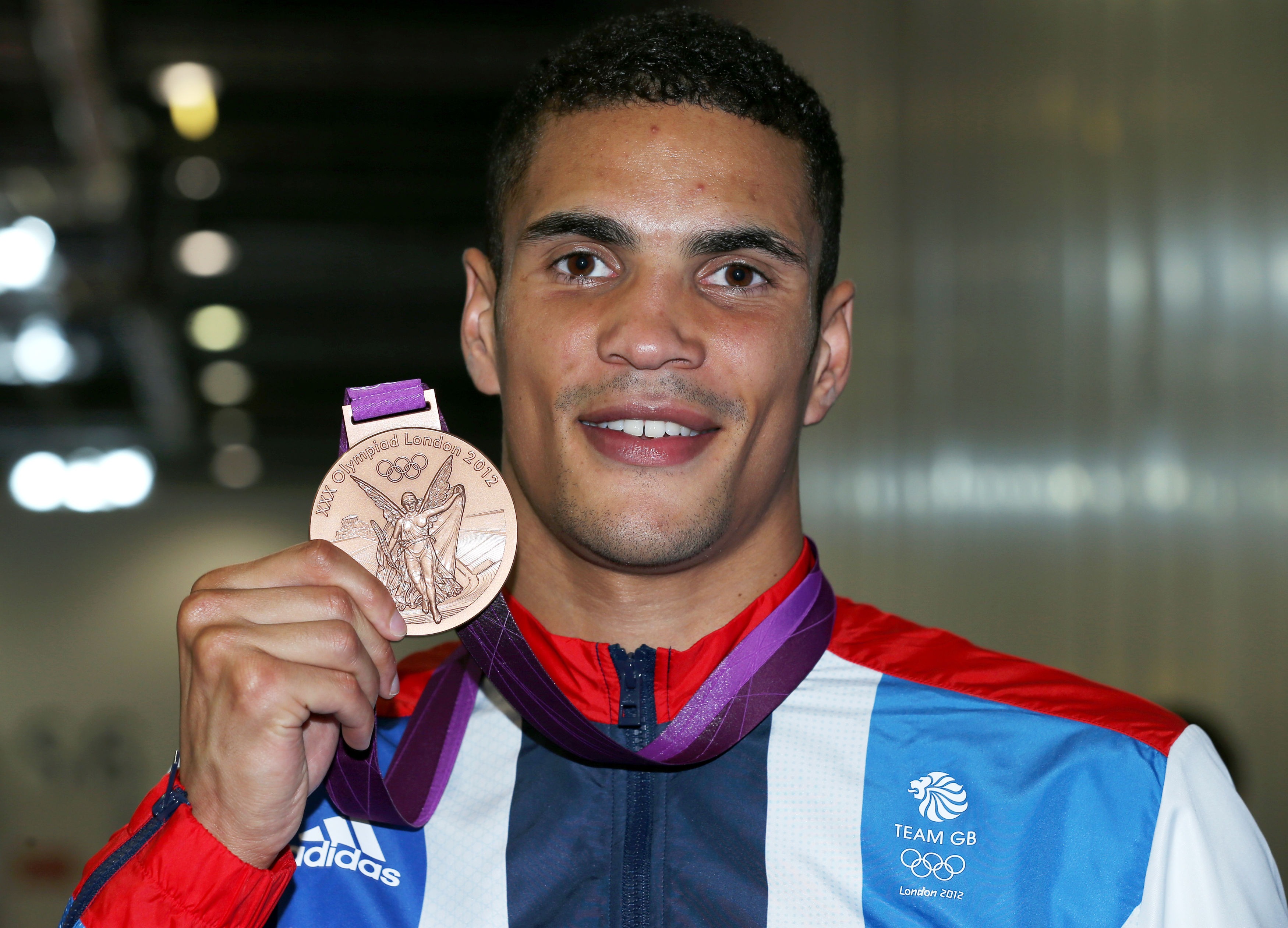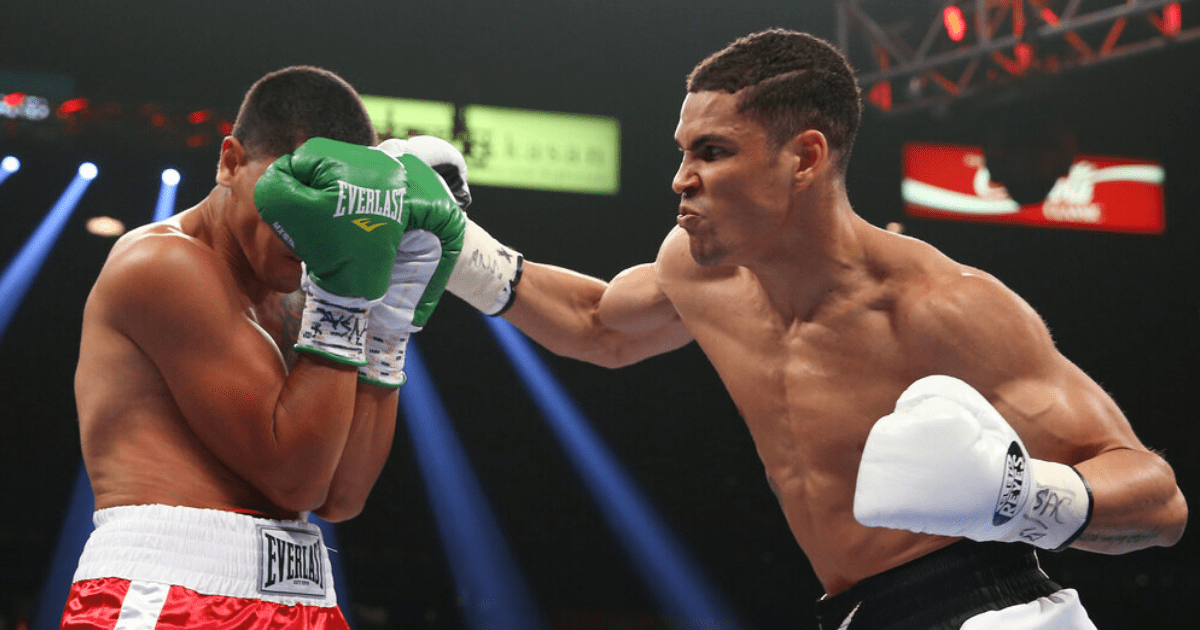Ogogo's Promising Start in Boxing
Anthony Ogogo, once touted as the next big name in British boxing, has revealed the heart-wrenching story behind his forced retirement from the sport at the age of 30. Ogogo, now 35, had a promising start to his career, winning a bronze medal at the London 2012 Olympic Games and going on to win his first 11 fights.
The Injury that Ended it All
However, his career took a devastating turn when he faced fellow Brit Craig Cunningham for the vacant WBC International middleweight title in 2016. Ogogo suffered a defeat and ended up fracturing his eye socket. This injury would prove to be career-ending, as Ogogo struggled to get the proper diagnosis and treatment from doctors.
A Long and Difficult Journey
Ogogo underwent nine surgeries in an attempt to save his vision and continue his boxing career. He even had a terrifying moment when his heart stopped during one of the surgeries. Despite the hardships, Ogogo remained determined and underwent five more surgeries. However, the misdiagnosis and incorrect surgery performed early on had irreversible consequences for his career.
Reinventing Himself and Finding Solace
After retiring from boxing, Ogogo found solace in pursuing other passions. He reinvented himself as an actor, podcaster, and wrestler. In his journey of self-discovery, he also found a deep friendship with iconic boxer Butterbean. The two have been training together, with Ogogo providing boxing work and mental health support for Butterbean's boxing comeback.

Butterbean's Inspiring Comeback
Butterbean, who was once on the brink of death and unable to get new hips due to his size, underwent a remarkable transformation. He lost a significant amount of weight, got new hips, and is now looking to step back into the ring. Ogogo, having witnessed Butterbean's resilience, is committed to standing in his corner on fight night.
A Bittersweet Ending
While Ogogo's boxing career may have been cut short, he has found new purpose and fulfillment in his life. His friendship with Butterbean and his dedication to helping others through his coaching and support are testaments to his strength and resilience.
We can't wait to see what Ogogo and Butterbean accomplish together in and out of the boxing ring.
Frequently Asked Questions
What kind diet should an amateur boxer adhere to?
A beginner boxer should aim for a well-balanced diet consisting of carbohydrates for energy, lean proteins for muscle repair and growth, healthy fats for endurance, and ample fruits and vegetables for vitamins and minerals. Also, hydration is crucial. Drink plenty of fluids before, during, as well as after exercising.
What should I be focusing on as a newbie in boxing
As a beginner you should focus your attention on the correct technique and form. This includes mastering the basic punches, establishing a strong defense, developing footwork, and improving your conditioning. Beginne slowly, prioritise technique over strength, and ask for guidance from an experienced coach.
Boxing can I begin at any age?
Boxing is a great sport for anyone of any age, provided they are healthy and their doctor has given them clearance. Boxing is a flexible sport that can be tailored to suit people of any age or fitness level.
Is it a good idea to box in order to be fit?
Boxing is a great way to improve your overall fitness. The full-body workout improves cardiovascular and muscular health, as well as endurance, coordination and agility. It’s also an excellent way to relieve stress. It will boost your confidence, as well as discipline.
Statistics
- On average, beginner boxers improve their punching power by 10%-20% after six months of consistent training.
- Women are joining boxing in increasing numbers, rising by about 15% in the past decade, indicating growing gender diversity in the sport.
- Studies show that proper hand wrapping can reduce the chance of hand and wrist injuries by as much as 40%.
- Approximately 80% of boxing injuries occur during training, not in actual competition.
- Approximately 50% of beginner boxers drop out within the first six months, highlighting the importance of sustaining motivation and setting realistic goals.
- Studies suggest that about 30% of beginner boxers tend to neglect the importance of footwork in their initial training phase.
- It is estimated that 60% of beginner boxers do not use the correct size gloves, which can increase the risk of injury.
- Nearly 80% of boxing training injuries are related to incorrect technique, especially within the first three months of taking up the sport.
- Despite the stereotype that boxing is a young person’s sport, approximately 20% of all beginners are over the age of 40.
- Cardiovascular fitness improvements can be seen after just 12 weeks of consistent boxing training.
External Links
boxingforlife.com
nerdfitness.com
liveabout.com
expertboxing.com
globalfightcenter.com
ringside.com
commandoboxing.com
verywellfit.com
sneakpunch.com
titleboxing.com
How To
How to Eat like a Boxer When Training
Boxing training is not complete without a proper nutrition plan. Consume a well-balanced diet, rich in lean protein, complex carbs, and healthy fatty acids, to aid recovery and boost energy. Stay hydrated while exercising by drinking plenty of water, and if needed, electrolyte-containing drinks. Eating at the right time can affect performance. So eat carbs and proteins before and after training for fuel and to aid recovery.

